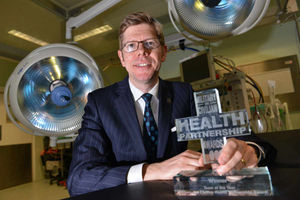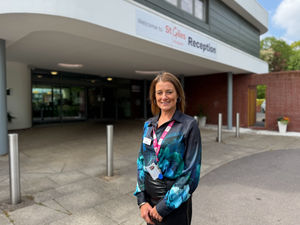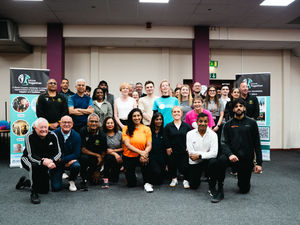Surgeon awarded for work with seriously injured soldiers
A surgeon has been given a prestigious award in recognition of his work with seriously injured soldiers.

Paul Anderson, a consultant urologist with the Dudley Group of Hospitals NHS Foundation Trust, has received the Military and Civilian Health Partnership Award 2014 in the Care of Veterans category.
The award reflects the surgeon's role in helping over 25 soldiers rebuild their lives after being seriously injured in bomb blasts in Afghanistan.
He said the mental impact of injuries in the genital/urethral area could be greater than if they had lost legs or other limbs, but his job was to help restore this part of the body to working order.
He said some of the operations could be more complex than others depending on the severity of the injuries, but helping to return the soldiers to health was especially rewarding as it meant the soldiers no longer had to use catheters.
The former King Edward's School pupil in Birmingham, who has appeared on Channel Four show Embarrassing Bodies, trained at Manchester medical school before working in Manchester, New Zealand and the Mersey region, as well as London and Italy, before joining the Dudley Group of Hospitals in May 2007 as a consultant urological surgeon practising at Russells Hall Hospital. He also works at West Midlands Hospital in Halesowen with the Birmingham Prostrate Clinic.
Due to his specialist expertise, he treats the soldiers at the Royal Centre for Defence Medicine (RCDM) at the Queen Elizabeth Hospital in Birmingham as part of a team called the Military Genitourinary Working Group.
Their work is highly specialised, treating men with horrific injuries.
Mr Anderson said: "We are very proud to receive this award for the very challenging and much needed work we do.
"It is humbling to work with young men who show extraordinary courage in the face of appalling injuries.
"The surgery I carry out in Dudley is very specialist and is internationally recognised. Because of this, five years ago, I was invited to work with the injured soldiers. This specialist service has been built up since that time.
"We see servicemen with injuries of a severity we would not expect to see in civilian life. By helping them, we are increasing our knowledge and experience of how to repair such injuries and we can apply this to help all our patients, military or civilian."





